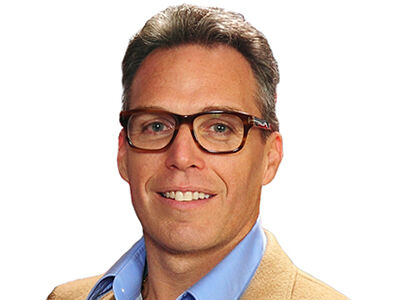Oakland's new mayor Barbara Lee fights high crime and tells federal law enforcement to stay away
News > Politics & Government News

Audio By Carbonatix
1:02 PM on Friday, November 21
By TERRY TANG
OAKLAND, Calif. (AP) — Last week, Oakland’s new mayor found herself consoling the friends and family of a beloved community college football coach who was shot on campus.
The day after her visit, Barbara Lee sat with The Associated Press for an hour at her downtown Oakland office. A veteran state legislator and federal congresswoman but city leader of only six months, Lee discussed both her city’s struggle with violent crime and its rich culture and deep sense of community.
Then, as the interview came to a close, she got the news she'd been dreading: 66-year-old football Coach John Beam — who'd taught thousands — had died the day after he was shot by a 27-year-old man whose public defense attorney said he was mentally ill.
Lee's face fell and a clearly devastated leader struggled to find words.
“Heartbroken,” was all she could muster at first.
Coach Beam was profiled in the Netflix docuseries “Last Chance U,” and he was shot at midday on Laney College’s athletic field. Murder and weapons charges have been filed against a 27-year-old man.
No longer representing her region from thousands of miles away, the 79-year-old Lee lives the liberal Northern California city’s vibrant daily life, its tough streets and its tensions with the Trump administration. Over two days, the AP saw how Lee and a group of government and community leaders are torn between their roles as Oakland boosters and crime fighters.
With local crime far above the national average, they have been preparing for the possibility of a federal intervention like those seen in Washington, Chicago, Los Angeles, Memphis, Tennessee, Charlotte, North Carolina and Portland, Oregon.
Like Oakland, many of those are led by Black mayors and have Black administrative leadership.
Lee said federal action aimed to foment racial division and single out Americans of color.
“We’re not letting Donald Trump divide and conquer Black and brown and white people from each other,” Lee said.
“Nobody in Oakland knows Donald Trump and his playbook better than Barbara Lee,” said Lee, who served in Congress from 1998 until last year. “We have to push back on any effort to occupy, to send a military force here and occupy our city.”
In August, President Donald Trump labeled Oakland and Baltimore as “so far gone ... we don’t even mention them anymore."
Last month, he called off dispatching federal forces to the Bay Area after talking to San Francisco’s mayor and tech CEOs.
The White House has in the past rejected suggestions that Trump’s expanded push on crime in cities has anything to do with race.
But Lee said the Trump administration has “crystallized for residents who they are, who they care about and who they don’t” and she is ready to peacefully resist federal authorities if they show up in her city of about 436,000. Their only purpose would be to “create chaos,” she said.
“We can’t have violence,” she said. “That plays right into Trump’s hand.”
Trump has not specifically discussed sending troops into Oakland, and a White House official declined to speak on the record about any internal deliberations.
Wil Ash, a lifelong resident who grew up in a predominantly Black neighborhood, said it’s too soon to tell whether Lee really help Oakland turn a new page.
“Only God knows,” he said. “We pray that she does.”
Between 1996 and 2020, the Oakland homicide rate hovered between 16.2 and 36.4 violent deaths per 100,000 people while the national rate hovered around five per 100,000, according to city police.
Oakland saw murders decrease by 32% between 2023 and 2024, a city end-of-year crime report states. Violent crimes were down 19%.
The mayor believes the city’s Department of Violence Prevention, established in 2017, deserves some credit for the crime decline. The staff are “violence interrupters,” who have experienced gun violence or incarceration and attempt to defuse conflict by speaking with members of the community they believe are involved in tensions that would lead to gun violence, said Holly Joshi, a former Oakland police officer who was appointed department chief in 2023.
Less crime is good news but it also matters is whether people feel a change, said Tinisch Hollins, executive director of Californians for Safety and Justice.
Many Black people left the Jim Crow South during the postwar boom and were able to buy homes, find jobs and seek higher education as Oakland became an epicenter of Black culture.
“Whole villages and communities uprooted and came here,” said Paul Cobb, publisher of the Oakland Post, a Black newspaper founded more than 60 years ago.
The migrants' children and grandchildren fueled a tradition of Black activism starting around the 1960s.
Huey P. Newton and Bobby Seale founded the Black Panther Party for Self-Defense in 1966 and advocated for initiatives like free breakfast for children and sickle-cell anemia testing.
But for many, the party's abiding image is of its gun-toting members, and its programs were often overshadowed by its confrontations with police, including Newton’s manslaughter conviction in the 1967 shooting death of an Oakland police officer.
“So many people had misconceptions about the Black Panther Party,” said Lee, an El Paso, Texas native who worked with the party in its early years. “You name it, there’s so many connections between today and yesterday.”
Today, Oakland's population is 30% Hispanic, 27% white, 19% Black and 16% Asian.
Most Oaklanders celebrate their city's diversity and point to the pleasures of hiking, strolling Jack London Square marina and walking around Lake Merritt, all within city limits. Diversity has helped make Oakland a culinary destination that's it’s home to Wahpepah’s Kitchen, one of the Bay Area’s few Native American restaurants. The chef at Joodooboo, a Korean tofu shop and eatery, was recently named Best New Chef by Food & Wine magazine.
While some crime statistics may be down, that hasn’t yet translated to economic security for many businesses. In-N-Out Burger shuttered its only Oakland location last year. Ayesha Curry, wife of Golden State Warriors star Steph Curry, closed her boutique in February.
Oakland has lost its pro football and baseball teams to Las Vegas and the Warriors moved to San Francisco in 2019.
Lee is determined to woo investment — everything from tech to historically Black colleges and universities. A local developer tied to the African American Sports and Entertainment Group is poised to acquire the Oakland Coliseum for $125 million and Samuel Merritt University is opening a downtown campus next year for 2,500 students.
“I was a cheerleader in high school, so I’m sort of a cheerleader for Oakland,” she said.
But would Lee welcome Trump to tour some of Oakland’s vibrant neighborhoods?
“No, thank you,” Lee said. “I encourage him to make his administration send a signal that his priorities include health care, housing, economic development, jobs, violence prevention and helping us get the guns off the streets of America. I hope that’s what he is encouraging his administration to do.”












